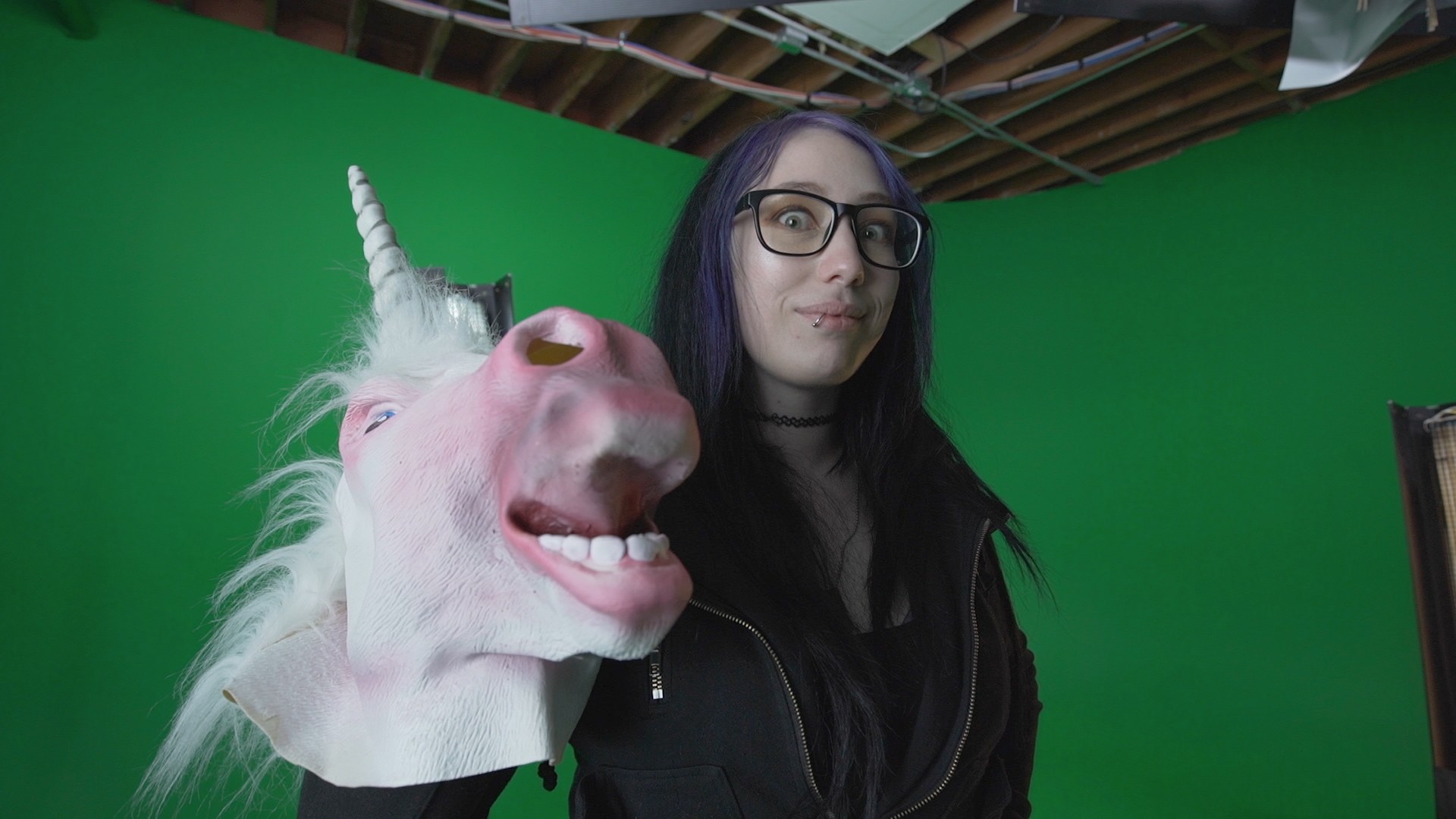Image via Pixabay
In some communities, particularly affluent ones, the attention afforded to #MeToo and Time’s Up has made it safer than ever to speak up about sexual harassment and abuse. But what if the abuse happens in cyberspace, and the abuser has no name? Traumatic incidents, including online harassment, revenge porn and sextortion, operate in a similar vein of oppression as the avalanche of transgressions that have sparked such movements. For the most part, belief and consequences followed these revelations.But the predator-behind-the-screen has become an increasingly common scenario, especially with American adults spending roughly 10 hours a day staring into a screen. With victims and abusers alike spending more time online, the internet has become ground zero for new forms of harassment for which justice is more difficult to come by.For those that seek to bully, shame, and exploit, the internet can seem like the perfect platform: an intangible entity that numbs empathy with distance and anonymity.According to Pew Research, 41 percent of Americans have been on the receiving end of online harassment. Women are more likely than men to view harassment as a major problem (70 percent versus 54) and are more likely to find it “extremely” or “very” upsetting than men (35 percent compared with just 16).
Check out more videos from VICE: Gamergate, for instance, unveiled the abuse of women in the online gaming community in 2014, the same year that hackers stole private photographs from celebrities including Kate Upton and Kirsten Dunst, and leaked them to the public. Actress Jennifer Lawrence, a victim of the latter event, characterized the leak as a sex crime.Dr. Michelle Ferrier, an entrepreneur and former journalist, was inspired by Gamergate to found Troll Busters, an organization that provides “just-in-time rescue services to support women journalists, bloggers and publishers who are targets of cyberharassment.” The online guidance and real-time intervention offers assistance to female victims in the online publishing realm, “busting trolls” just as the name implies.As helpful as grassroots support has been, the issue of online abuse is also abetted by a lack of relevant legislation. It’s not for a lack of trying: cybercrime expert Jayne Hitchcock has been working since 1997 to amend the legal system for the internet age. Her organization, Working to Halt Online Abuse (WHOA), was founded after she and another friend fell prey to cyber stalkers and came to understand how little the law could do for them.Female politicians are also fighting within the legal system to combat this toxic trend. Congresswoman Katherine Clark (D-MA 5th District), for instance, has been a fierce advocate for the cause since 2013. She most recently sponsored the Online Safety Modernization Act of 2017, which seeks to “establish certain criminal violations for various aspects of harassment using the interstate telecommunications system,”which is currently in the first stage of the legislative process. A swatting victim herself, she introduced the Interstate Swatting Hoax Act in 2015 to criminalize using false communications with the intent to create an emergency response. Though the act died in a previous session of Congress, she continues to support similar legislation. Clark will be up for reelection in 2018.Tech companies, including social media behemoths like Facebook and Twitter, have a role to play as well. Though Section 230 of the 1996 Communications Decency Act (CDA 230) precludes companies from being held legally liable for what is posted or said on their websites, these companies have a responsibility to users to ensure safety and decency. As California Senator Dianne Feinstein, said recently regarding this law, “You bear this responsibility. You created these platforms, and now they’re being misused. And you have to be the ones who do something about it, or we will.”Yet Silicon Valley appears to lack the motivation, if not the ability, to end online harassment on their own. This could change soon: under pressure from shareholders, Twitter and Facebook were asked recently to produce reports about the scope of sexual harassment on their platforms and the efficacy of their efforts to combat that behavior.To truly empower women online, the first and easiest step is contacting your elected representatives to express the need for new laws or amendments to existing ones.
Gamergate, for instance, unveiled the abuse of women in the online gaming community in 2014, the same year that hackers stole private photographs from celebrities including Kate Upton and Kirsten Dunst, and leaked them to the public. Actress Jennifer Lawrence, a victim of the latter event, characterized the leak as a sex crime.Dr. Michelle Ferrier, an entrepreneur and former journalist, was inspired by Gamergate to found Troll Busters, an organization that provides “just-in-time rescue services to support women journalists, bloggers and publishers who are targets of cyberharassment.” The online guidance and real-time intervention offers assistance to female victims in the online publishing realm, “busting trolls” just as the name implies.As helpful as grassroots support has been, the issue of online abuse is also abetted by a lack of relevant legislation. It’s not for a lack of trying: cybercrime expert Jayne Hitchcock has been working since 1997 to amend the legal system for the internet age. Her organization, Working to Halt Online Abuse (WHOA), was founded after she and another friend fell prey to cyber stalkers and came to understand how little the law could do for them.Female politicians are also fighting within the legal system to combat this toxic trend. Congresswoman Katherine Clark (D-MA 5th District), for instance, has been a fierce advocate for the cause since 2013. She most recently sponsored the Online Safety Modernization Act of 2017, which seeks to “establish certain criminal violations for various aspects of harassment using the interstate telecommunications system,”which is currently in the first stage of the legislative process. A swatting victim herself, she introduced the Interstate Swatting Hoax Act in 2015 to criminalize using false communications with the intent to create an emergency response. Though the act died in a previous session of Congress, she continues to support similar legislation. Clark will be up for reelection in 2018.Tech companies, including social media behemoths like Facebook and Twitter, have a role to play as well. Though Section 230 of the 1996 Communications Decency Act (CDA 230) precludes companies from being held legally liable for what is posted or said on their websites, these companies have a responsibility to users to ensure safety and decency. As California Senator Dianne Feinstein, said recently regarding this law, “You bear this responsibility. You created these platforms, and now they’re being misused. And you have to be the ones who do something about it, or we will.”Yet Silicon Valley appears to lack the motivation, if not the ability, to end online harassment on their own. This could change soon: under pressure from shareholders, Twitter and Facebook were asked recently to produce reports about the scope of sexual harassment on their platforms and the efficacy of their efforts to combat that behavior.To truly empower women online, the first and easiest step is contacting your elected representatives to express the need for new laws or amendments to existing ones.
Advertisement
It would be easy to chalk this discrepancy up to sensitivity if it weren’t for the nature of cyber harassment experienced by men and women respectively. Though rates are about even between genders, it’s women who are subject to more severe misconduct: harassment of a sexual nature, rape threats, revenge porn, and stalking, in addition to newer offenses like doxxing (releasing someone’s personal information publicly) and swatting (calling a SWAT team to someone’s address.)“Letting [the troll] know we’re watching is a key intervention."
Check out more videos from VICE:

Advertisement
TrollBusters replies to reports of online harassment, monitors the situation with the target’s consent, and issues a “warning shot” to the troll. “Letting [the troll] know we’re watching is a key intervention,” Ferrier told VICE Impact. But TrollBusters also issues positive messaging to counter the abuse, helping targets regain control of the situation and find solutions. “We armor up [female journalists] so that they understand how to protect themselves,” Ferrier said, adding that their team (a combination of 24/7 volunteers and paid staff) coaches women through necessary actions, including workplace and legal advice.“I’ve been a journalist and a columnist and experienced harassment and hate mail,” Ferrier told VICE Impact. “I saw a lot of activity on my feed by people affected by [Gamergate] and it triggered my own experiences from over 13 years ago.” As the first African-American columnist for a Florida-based newspaper, she had been on the receiving end of violent hate mail that she was powerless over.The issue of online abuse is also abetted by a lack of relevant legislation.
Advertisement
“I have personally testified in person or in writing for many of the laws on the books in all 50 states,” she told VICE Impact, adding that she helped Maryland pass one of the nation’s first email harassment laws and co-wrote the law on cyberstalking in her home state of Maine, which establishes course of conduct through a device as legitimate form of stalking.Along with WHOA, the also-female-founded Cyber Civil Rights Initiative is working to update stalking and revenge porn laws. Holly Jacobs, a victim of revenge porn herself, founded this nonprofit organization in order to educates lawmakers about NCP (nonconsensual pornography) and provide victims with referrals, among other services. The organization has found itself addressing even newer privacy concerns including the rise of “deepfakes” -- software that can superimpose faces onto pornographic footage.
Silicon Valley appears to lack the motivation, if not the ability, to end online harassment on their own.
Advertisement
Advertisement
Women like Ferrier and Hitchcock prove that the fight for progress in the tech arena is not new, but also far from over. According to Ferrier, online platforms hold a lot of the power, but there are steps bystanders and victims can take. “I don’t encourage people to go after [trolls],” she said. She does, however, suggest that bystanders call out online abuse when they see it and report it as necessary.Because cyberbullying starts young and can evolve, putting time and money into organizations that address bullying amongst young people, and gendered attacks in particular, could nip trolls before they bud. STOMP Out Bullying, a national anti-bullying and cyberbullying organization for kids and teens in the U.S., spreads awareness and teaches effective solutions to cyberbullying, including sexual harassment among young people.
